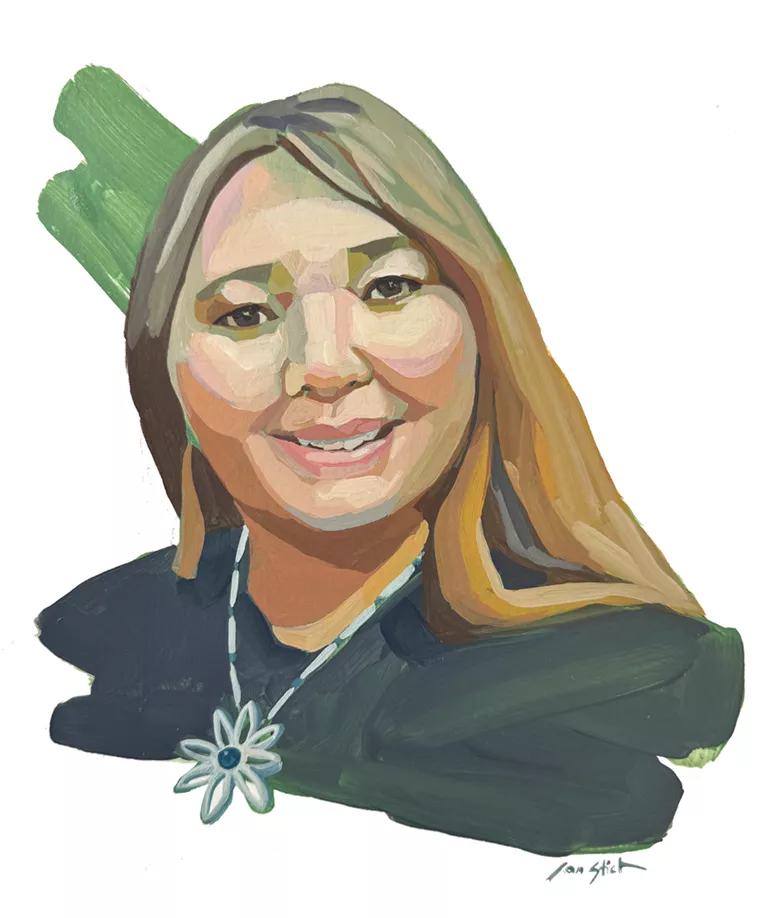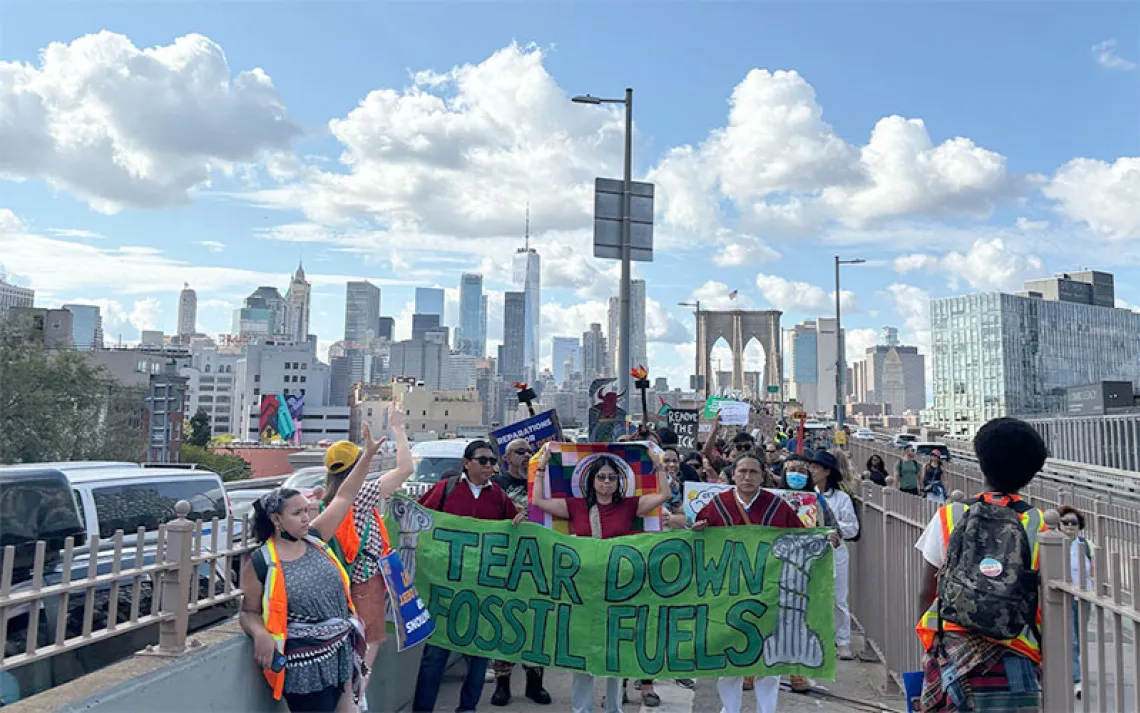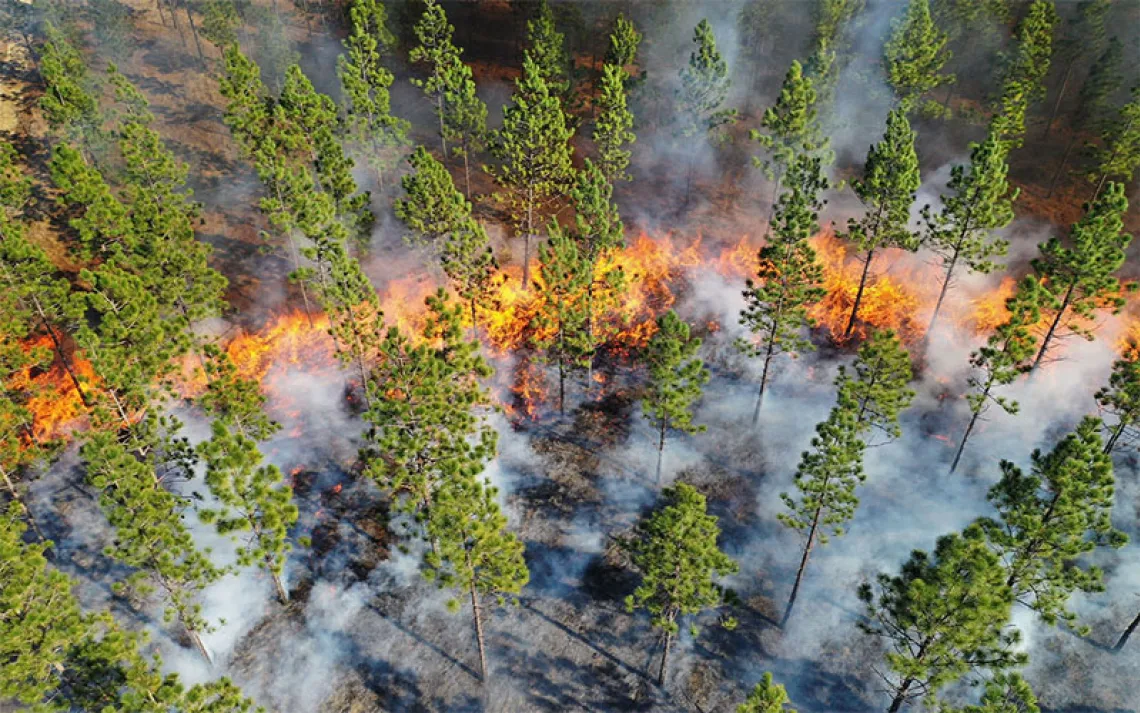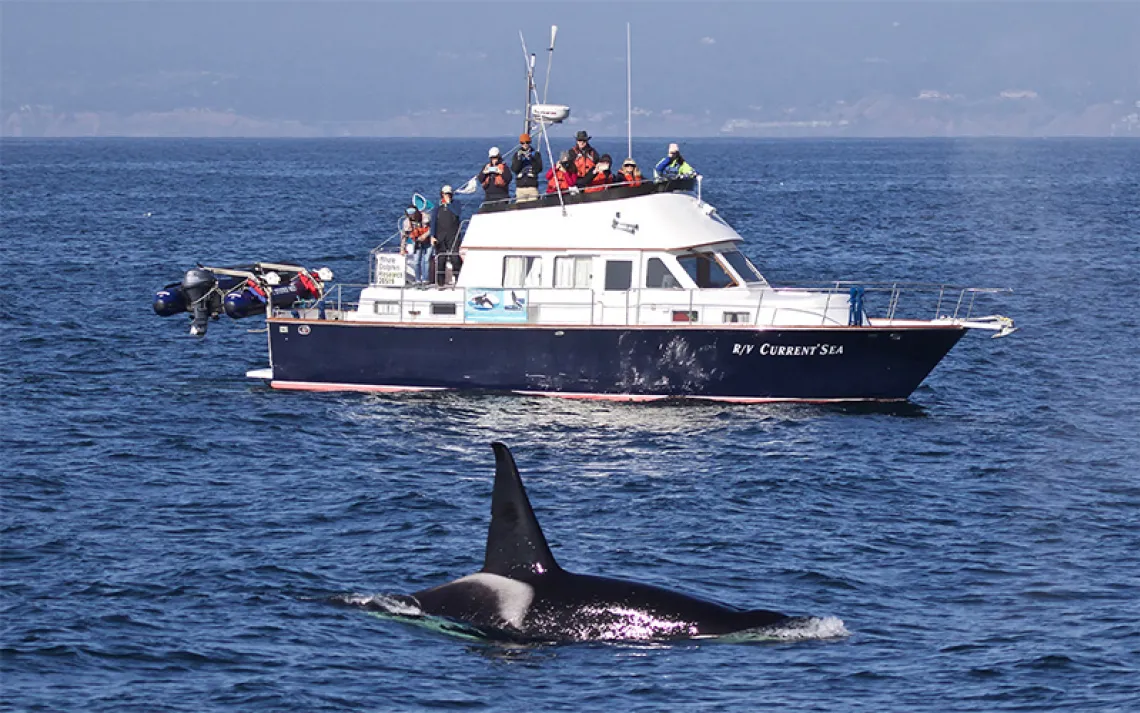For the Love of Water
Meet Dawn Goodwin, cofounder of RISE Coalition, Minnesota

Illustration By Jon Stich
I first heard about the Line 3 Pipeline in 2014, when Enbridge was proposing to build a different pipeline through northern Minnesota called Sandpiper. I saw a post on Facebook that said there was going to be a public hearing near the White Earth Reservation, where I live. I decided to go. One of the other attendees asked if this was the only project, and Enbridge said yes. Then another person brought up Line 3 [an existing oil pipeline the company wanted to rebuild so that it could continue to carry Canadian tar sands oil to the United States]. The Enbridge officials were almost trying to deceive us. From there, I started attending all the local hearings that I could.
The 2016 revolt at Standing Rock was a turning point for me. It inspired me to speak out against Line 3. I joined MN350 and the Minnesota Oil Transportation Table, a group of organizers that track state legislation and rulemaking. In 2017, the White Earth Nation asked me to be its expert witness in an evidentiary hearing on the pipeline. I spoke about the threats to wild rice and wetlands, and the fact that the oil is a carcinogen.
When the Public Utilities Commission granted Enbridge the final permit in 2018, I couldn’t believe it. I felt all the emotions: anger and sadness and worry and stress. Tribal members across the 1855 Treaty area in northern Minnesota worked with groups like the Sierra Club to publicly call on Governor Mark Dayton to stop Line 3.
It was out of this advocacy work that I cofounded the RISE Coalition in 2019. It started when a member of the Fond Du Lac [Band of Lake Superior Chippewa] named Deb Topping approached me and several other activists to see if we wanted to start an Indigenous-women-led group to track Enbridge and see how it was disturbing the land.
In 2020, we were meeting at a prayer lodge in the Savanna State Forest by the river. Enbridge had put a survey stake in a stand of trees right next to the lodge. I was looking at all the signs and couldn’t believe this was happening in a wetland area. There were tree shears [mechanical tree-cutters] there. Something within me said, “Right here, in front of this, is a good place for you to sit and pray.” I was there all day. When it got dark, the machines started up and backed out of the woods.
Two weeks later, I was coming from a water ceremony and several young people were blocking Enbridge traffic. All of a sudden, a group of officers came at me. Apparently, I had crossed the line where they were building the fence for the pipeline. I thought they were going to arrest me, but people started chanting, “Let her go!” I got a citation.
Between 2018 and 2021, when Line 3 went online, I received five misdemeanor charges for peacefully opposing the pipeline. In September 2023, the judge overseeing the cases dismissed all the charges. I was so relieved and elated—I just felt like we were finally heard.
This pipeline puts our Anishinaabe lifeways in danger. So far, our coalition has identified at least four times that Enbridge has pierced our aquifers. My intrinsic love for water is the underlying driving force for the work that I do, which is why I’ve dedicated the rest of my life to doing what I can to protect it.
 The Magazine of The Sierra Club
The Magazine of The Sierra Club



